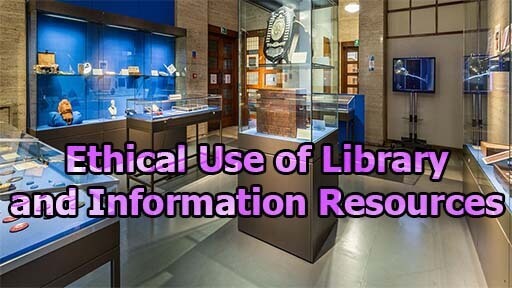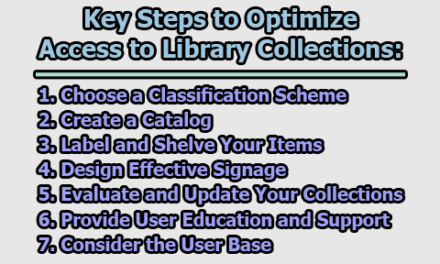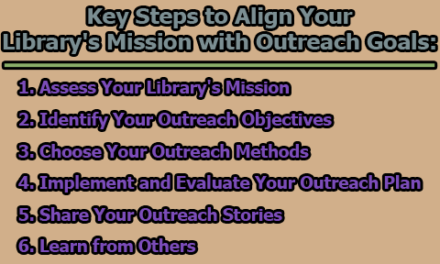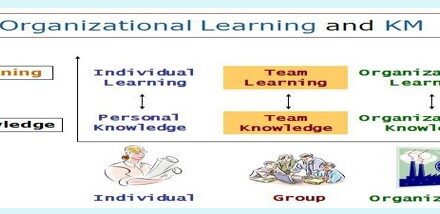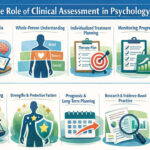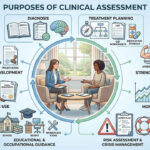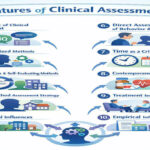Ethical Use of Library and Information Resources:
Library and information resources are an essential part of education, research, and development. They provide access to information, knowledge, and resources that can help individuals and institutions to grow, learn, and progress. However, the use of these resources also raises ethical issues that must be addressed to ensure the integrity, authenticity, and legality of the information accessed and used. This article discusses the ethical use of library and information resources, including the principles and guidelines that govern their use. It explores the importance of ethical behavior in the use of these resources and the consequences of unethical behavior. Additionally, the article highlights some of the challenges that individuals and institutions face in upholding ethical standards and suggests possible solutions to these challenges.
What is Information Ethics?
Information ethics refers to the principles, guidelines, and standards that govern the access, use, and dissemination of information. It is concerned with the ethical issues that arise from the creation, acquisition, storage, retrieval, and dissemination of information in all forms and formats. Information ethics is a subset of professional ethics, which is concerned with the ethical behavior of professionals in their respective fields.
The ethical use of library and information resources is a critical component of information ethics. It involves respecting the intellectual property rights of creators and owners of information, ensuring the authenticity and accuracy of the information, and using the information in a manner that does not infringe on the rights of others. Ethical use of library and information resources also requires individuals and institutions to uphold the principles of confidentiality, privacy, and security of information.
Principles of Ethical Use of Library and Information Resources:
The ethical use of library and information resources is guided by several principles, which are discussed below.
- Intellectual Property Rights: Intellectual property rights refer to the legal rights that protect the creations of the human mind, such as inventions, literary and artistic works, and symbols, names, and images used in commerce. These rights include patents, copyrights, trademarks, and trade secrets. The ethical use of library and information resources requires individuals and institutions to respect the intellectual property rights of creators and owners of information.
This means that individuals and institutions should not copy, distribute, or use copyrighted material without permission from the copyright holder. They should also avoid plagiarism, which involves presenting someone else’s work as one’s own without proper attribution. Proper attribution involves citing the source of the information and acknowledging the original author or creator of the work.
- Authenticity and Accuracy: Authenticity and accuracy are essential aspects of the ethical use of library and information resources. Authenticity refers to the reliability and trustworthiness of information. It means that the information is original, genuine, and has not been altered or tampered with in any way. Accuracy, on the other hand, refers to the correctness and truthfulness of information. It means that the information is free from errors, biases, and inaccuracies.
To ensure the authenticity and accuracy of the information, individuals and institutions should use reliable and reputable sources of information. They should also verify the information obtained from these sources to ensure that it is current, relevant, and trustworthy. Additionally, they should avoid spreading false or misleading information that can harm individuals, institutions, or society at large.
- Privacy and Confidentiality: Privacy and confidentiality are important ethical principles that govern the use of library and information resources. Privacy refers to the right of individuals to control the collection, use, and disclosure of their personal information. Confidentiality, on the other hand, refers to the duty to protect sensitive and confidential information from unauthorized access, use, or disclosure.
To uphold the principles of privacy and confidentiality, individuals and institutions should ensure that they obtain the necessary consent from individuals before collecting, using, or disclosing their personal information. They should also take appropriate measures to safeguard sensitive and confidential information from unauthorized access, use, or disclosure.
- Accessibility and Equity: The ethical use of library and information resources also requires individuals and institutions to promote accessibility and equity. Accessibility refers to the ability of individuals to access information regardless of their physical, cognitive, or socioeconomic status. Equity refers to the fair and equal distribution of information resources to all individuals and communities.
To promote accessibility and equity, individuals and institutions should strive to provide equal access to information resources to all individuals and communities, regardless of their physical, cognitive, or socioeconomic status. This can be achieved through the use of assistive technologies, such as screen readers, captioning, and sign language interpretation, to make information accessible to individuals with disabilities. Additionally, individuals and institutions should seek to reduce the digital divide by providing access to information resources in underserved communities.
- Responsible Use: The ethical use of library and information resources also requires individuals and institutions to use information responsibly. This means that they should use information in a manner that does not harm individuals, institutions, or society at large. It also means that they should use information for legitimate and ethical purposes only.
To use information responsibly, individuals and institutions should avoid using the information to engage in illegal or unethical activities, such as cyberbullying, defamation, or copyright infringement. They should also avoid using information to discriminate against individuals or groups based on their race, gender, religion, or other personal characteristics. Additionally, they should use information in a manner that respects the rights and dignity of others.
Consequences of Unethical Use of Library and Information Resources:
The unethical use of library and information resources can have serious consequences for individuals, institutions, and society at large. Some of the consequences of unethical use are discussed below.
- Legal Consequences: The unethical use of library and information resources can lead to legal consequences, such as fines, penalties, or imprisonment. This can happen if individuals or institutions violate copyright laws, engage in cyberbullying or harassment, or engage in other illegal activities using information resources.
- Reputational Damage: The unethical use of library and information resources can also lead to reputational damage. This can happen if individuals or institutions are found to have engaged in plagiarism, academic dishonesty, or other unethical behavior related to information resources. Reputational damage can harm an individual or institution’s credibility, integrity, and future opportunities.
- Loss of Trust: The unethical use of library and information resources can also lead to a loss of trust. This can happen if individuals or institutions are found to have violated the principles and guidelines that govern the use of information resources. A loss of trust can harm an individual or institution’s relationships with others and make it more difficult to establish new relationships in the future.
Challenges in Upholding Ethical Use of Library and Information Resources:
Upholding the principles and guidelines that govern the ethical use of library and information resources can be challenging. Some of the challenges are discussed below.
- Lack of Awareness: One of the biggest challenges in upholding the ethical use of library and information resources is a lack of awareness. Many individuals and institutions are not aware of the principles and guidelines that govern the use of information resources. This can lead to unintentional violations of ethical standards and principles.
- Technological Advancements: Technological advancements have made it easier to access and use information resources. However, they have also created new challenges in upholding ethical standards and principles. For example, the ease of copying and distributing digital content has made it more difficult to protect intellectual property rights and ensure the authenticity and accuracy of information.
- Globalization: The globalization of information resources has also created new challenges in upholding ethical standards and principles. Information can be accessed and used from anywhere in the world, which makes it more difficult to enforce ethical standards and principles across different jurisdictions.
Solutions to Challenges in Upholding Ethical Use of Library and Information Resources:
To address the challenges in upholding the ethical use of library and information resources, individuals and institutions can take the following steps:
- Education and Awareness: Individuals and institutions can promote education and awareness about the principles and guidelines that govern the ethical use of information resources. This can be achieved through training programs, workshops, and other educational initiatives that help individuals and institutions understand the importance of ethical use and the consequences of unethical use.
- Policies and Guidelines: Individuals and institutions can also develop and enforce policies and guidelines that govern the ethical use of information resources. These policies and guidelines should be clear, concise, and accessible to all individuals and communities. They should also be regularly reviewed and updated to reflect changes in technology and society.
- Technology and Infrastructure: Individuals and institutions can also invest in technology and infrastructure that promote the ethical use of information resources. This can include the use of digital rights management technologies, firewalls, and other security measures that protect information resources from unauthorized access and use.
- Collaboration and Partnerships: Individuals and institutions can also collaborate and form partnerships to promote the ethical use of information resources. This can include partnerships between libraries, educational institutions, and other organizations that share a commitment to ethical use.
At the end of the day, we can say that the ethical use of library and information resources is essential for promoting the free flow of information, protecting intellectual property rights, and upholding the principles of integrity and accountability. It requires individuals and institutions to promote access and equity, use information responsibly, and follow the principles and guidelines that govern the ethical use of information resources. While there are challenges in upholding ethical use, these challenges can be addressed through education and awareness, policies and guidelines, technology and infrastructure, and collaboration and partnerships. By upholding the ethical use of library and information resources, individuals and institutions can ensure that information remains a valuable resource for promoting education, research, and innovation, while also upholding the principles of fairness, equity, and respect for others.
References:
- American Library Association. (2015). Code of Ethics of the American Library Association.
- International Federation of Library Associations and Institutions. (2012). IFLA Code of Ethics for Librarians and Other Information Workers.
- Harris, C., & Dewdney, P. (1994). Barriers to information: How formal help systems fail battered women. Westport, CT: Greenwood Press.
- Johnson, D. J. (2014). Ethical principles for information professionals. Library Technology Reports, 50(1), 26-33.
- National Information Standards Organization. (2010). Principles for digital data management.
- Oder, N. (2018). Intellectual freedom and social responsibility in American librarianship, 1967-1974. Libraries and the Cultural Record, 53(2-3), 140-157.
- Rodriquez, R. (2018). The ethics of digital literacy: Developing knowledge and skills for an age of mass data collection. Journal of Library Administration, 58(3), 233-247.
- Sacco, L. (2015). Ethical issues in library and information science. Library Philosophy and Practice, 1-8.
- United Nations Educational, Scientific and Cultural Organization. (2015). Access to Information: A key to Sustainable Development.
- Zhang, X., & Lu, X. (2016). Ethical issues in library and information science research: An analysis of the research articles published in Library & Information Science Research. Library & Information Science Research, 38(3), 224-231.

Library Lecturer at Nurul Amin Degree College

